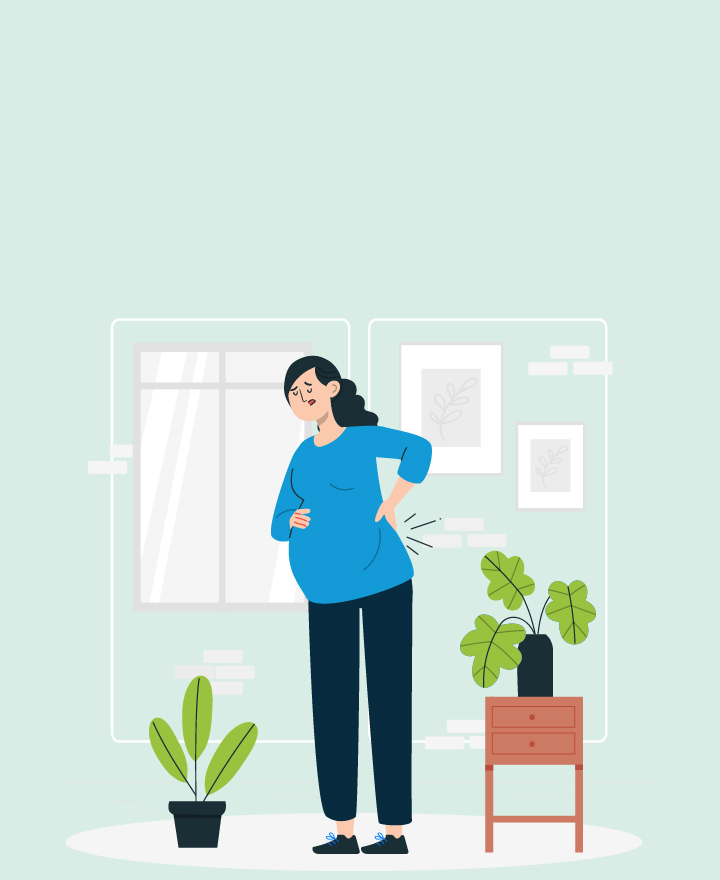

Signs of Approaching Labour: Know What to Expect?
Signs your body is getting ready for labour is easy to spot and once you experience them, you need to rush to the hospital. This happens at the last stage of pregnancy and this is the end of pregnancy. Read on to know more about the signs of approaching labour.
Signs Indicating that Labour Is Near
Also known as pre-labour symptoms, look out for these very early signs of which can happen either from a full month or more or merely an hour before active labour starts.
● As the baby is moving downwards and away from your lungs to get into the exit position, it makes your breathing easy by making a bit more breathing room.
● You may still experience the need of frequent urination like you probably have been in the third trimester because baby’s head is now pushing down on your bladder.
● Baby drops or lightening, is one of the signs that you are getting closer to labour. Dropping is when a baby descends lower into the pelvis in preparation for birth. This happens usually around two to four weeks before, but it can vary.
● Your cervix starts to dilate (open) and efface (thin out) in the days or weeks before you deliver.
● As labour nears you may feel some cramping and pain in your lower back and groin, especially if it is your first pregnancy. This is because your muscles and joints are stretching and shifting in preparation for birth.
● Before you go into labour, you may notice your joints to feel a bit less tight and more relaxed. This helps in opening up your pelvis to allow your little one to come out.
● You may experience diarrhoea because just as the uterus muscles are relaxing in preparation of birth, so are the other muscles, including those in the rectum.
● Pregnancy weight gain stops and the weight often levels off at the very end. This is normal and happens because of lower levels of amniotic fluids and increased urination.
● With that super-size belly and your compressed bladder, it can get tricky to get a good night’s sleep resulting in feeling fatigue.
Signs of Labour
When child is approaching, the signs your body is getting ready for labour become very evident. Here are the most common ones:
● Experiencing strong frequent contractions
● Experience increased and/or thickened pinkish vaginal discharge called bloody show. This is a good indication that labour is imminent.
● Feeling strong menstrual cramps, upset stomach or lower abdominal pressure. You could also have pain in your lower back that radiates down into the legs.
● Water breaking is actually one of the final signs of labour most women experience but it happens naturally in only around 15% of births or fewer. For most women, membranes rupture and amniotic fluid leaks after other labour symptoms have already begun.
When Should You Call Your Doctor?
Labour contractions won’t all be exactly spaced, but if they're becoming pretty consistent, more painful and longer (usually around 30 to 70 seconds each), it’s time to check in with your doctor. Also, your doctor has likely advised you on what to do when your due date is near and you think you're experiencing regular contractions.
Conclusion
Every birth is different, so it’s hard to predict the answers to all those questions. But knowing all about the signs and symptoms of labour will help- you know that it's almost time to meet your baby.
Sources: Parents, Cleveland Clinic, What to Expect
Disclaimer: This blog provides general information and discussions about health and related subjects. The information and other content provided in this blog, website or in any linked materials are not intended and should not be considered, or used as a substitute for, medical advice, diagnosis or treatment. Kindly contact your Doctor before starting a new medicine or health regime.
Related Articles
Pregnancy Care Tips For Healthy Baby And Mom-To-Be
How To Stay Healthy During Pregnancy
Nutrient-Rich Foods For A Healthy Pregnancy
Pregnancy Diet Chart: What Not To Eat During Pregnancy
How Stretching Exercises Can Benefit During Pregnancy
Published on November 10, 2022
























 Health Insurance
Health Insurance  Travel Insurance
Travel Insurance  Car Insurance
Car Insurance  Cyber Insurance
Cyber Insurance  Critical Illness Insurance
Critical Illness Insurance
 Pet Insurance
Pet Insurance
 Bike/Two Wheeler Insurance
Bike/Two Wheeler Insurance  Home Insurance
Home Insurance  Third Party Vehicle Ins.
Third Party Vehicle Ins.  Tractor Insurance
Tractor Insurance  Goods Carrying Vehicle Ins.
Goods Carrying Vehicle Ins.  Passenger Carrying Vehicle Ins.
Passenger Carrying Vehicle Ins.  Compulsory Personal Accident Insurance
Compulsory Personal Accident Insurance  Travel Insurance
Travel Insurance  Rural
Rural